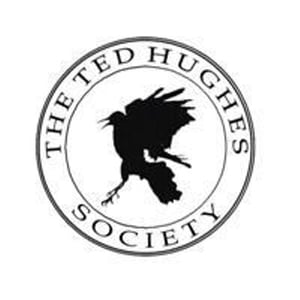Ted Hughes and the Arvon Foundation
Ted Hughes and the Arvon Foundation
“Do not study art, practice it”: Japanese saying.
“Example is a globe of precepts”: Francis Bacon.[1]
The main working principles of the Arvon Foundation, which was founded in 1968 by poets John Moat and John Fairfax, were based on these precepts. Both men were friends of Ted Hughes but, as Hughes remembered later, when Moat first outlined his plan for an innovative programme to encourage young people to write, he “more or less told him outright” that he thought the scheme unworkable. In 1981, as he wrote the ‘Foreword’ for Fairfax and Mote’s book The Way to Write, he looked back in amazement at his immediate negative response and saw it as an unconscious, reflex expression of a culturally induced English negativity towards creativity, enthusiasm and the pursuit of excellence - all things which he actually regarded as vital to the innermost self of human beings. Being a practical Yorkshireman, however, he had immediately thought of the difficulties John Moat’s experiment would meet in terms of gaining the support of educational institutions and of finding the cash to implement it.
The plan was “to gather about fourteen young people … and two writers in a secluded house, where all would live together for five days, working at writing”. The only ‘instruction’ would be “what rose directly out of their involvement – the apprentice working, and the master guiding him as he worked, showing him how to work, helping him to work”.
Luckily, Moat and Fairfax went ahead with their plans and Hughes’s expectations were completely changed after he was invited to read some verse to the first group of students on the final evening of their course. What he discovered there, he wrote, was that “something extraordinary had happened” and the “voltage of new-found imagination and eloquence and originality in those students’ pages seemed like an explosion”. He was surprised and immensely moved.
From that time on, Hughes supported the Arvon Foundation in every way he could. “I spent no small volume of time and cash on it”, he told me in 1993. But he was more than happy to do that.[2]
In 1974, he renovated his big 18th century mill-owner’s house at Lumb Bank and leased it to the Arvon Foundation. It is still the Ted Hughes Arvon Centre, Yorkshire, and you can see photographs of it on the Arvon site at www.arvon.com. That same year, he wrote to Ruth Fainlight and Alan Sillitoe strongly advising them to take up any offer to be part of the course because “it works on the poets very much as it works on the students”.[3]
In 1979, in order to alleviate the Foundation’s “indigestible debt”, Hughes suggested that they hold an international poetry competition. The judges (to whom a £350 fee would be offered, as he told Larkin when asking him to become one) were himself, Charles Causley, Seamus Heaney and Philip Larkin. Together, they read every one of the 30,000 entries they received. Reading and discussion between them went on for months as they struggled “to become four bodies with but a single head – or at least a single mouth-piece”.[4] The winning entry was ‘The Letter’ by a young poet – Andrew Motion - who went on, in 1998, to succeed Hughes as Poet Laureate.
After his first brief moment of skepticism, Hughes had no doubt about the importance and value of the Arvon Foundation courses in awakening students to “real life language” and introducing them to literature as a living organism, something they could be part of and something which would stay with them all their lives.
Today, the Arvon Foundation is a dynamic and thriving entity. You can read more about it, hear some of the things students say about their experiences there, and find out about the courses which are currently planned at their website: www.arvon.org You can also see a photograph there of Ted Hughes, Charles Causley and Seamus Heaney immersed in poetry at a table piled with folders as they judged the first Arvon Foundation International Poetry Competition.
©Ann Skea, 2016
Ann Skea is an independent scholar and author of Ted Hughes: The Poetic Quest (UNE Press, Australia). Her website The Ted Hughes Homepage, collects a number of her Hughes related publications and research, as well as a Ted Hughes Timeline, transcripts of international interviews with Hughes and memoirs written by some of his colleagues and friends.
[1] These and most other quotations are from The Way to Write by John Fairfax and John Moat, with a Foreword by Ted Hughes, Elm Tree Books, Hamish Hamilton, London 1986.
[2] Ted Hughes to Ann Skea, 18 Aug. 1993 (British Library)
[3] Reid. C (ed.) Letters of Ted Hughes, Faber, 2007. p.345.
[4] Ted Hughes to Philip Larkin. Reid.C. op.cit. pp. 404 and 441.
